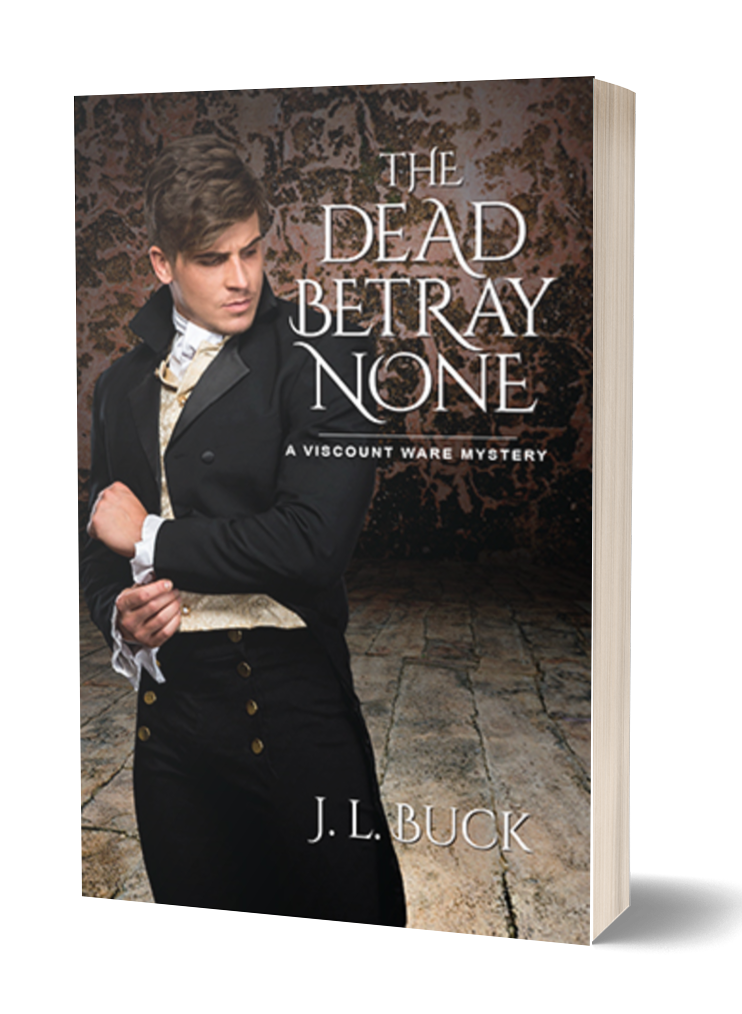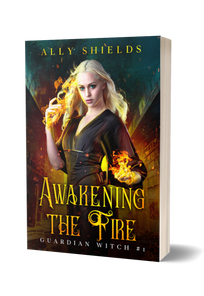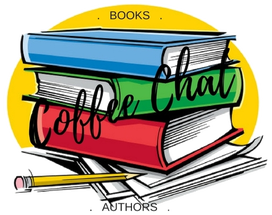
I'm delighted to have author Rosemary Nichols with us this morning to talk about historical fiction and a little bit of this and that.
Welcome, Rosemary. What may I get you to drink?
RN: I spent decades happily drinking coffee but in the past year it has started to bother my stomach. Now I drink tea. English Breakfast in the morning (with milk, as it is supposed to be drunk), iced tea during the day, and either Sleepy Time or a non-caffinated tea at night. I feel like such a woose.
Ally: Never that! We’ve had many tea drinkers on the Coffee Chat. And some are pretty hardcore. :) While I brew a cup, please introduce yourself to readers.
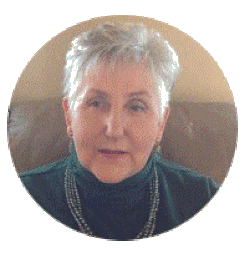
I am a 71 year old retired attorney who has written eight books and published five of them. I write historical fiction with a mystery twist. I focus primarily on Nineteenth Century America.
Something unique/unusual that isn’t in my regular bio: “I lived in a house without interior plumbing until I went to college. That wasn’t as awful as it sounds because I lived in central Arizona, which wasn’t very cold in the winter.”
Contact the Author:
My web page is rosemarygailnichols.com
Email address: [email protected].
Ally: What can readers expect from a Rosemary Nichols novel?
RN: I write historical fiction. My novels are basically PG. The only sex takes place behind closed doors, with the details left to the reader’s imagination.
Ally: Where do you get your story ideas?
RN: I love to do research and I have been studying history since high school. I have two degrees in history. I have a life time folder full of story ideas. There are so many fabulous historical incidents that people just don’t know. That’s why the two books my stepdaughter Michaela MacColl and I wrote together are called “Hidden History”. Who knew that the famous Dred Scott case exists because of Dred’s wife Harriet? Dred probably didn’t like being enslaved (who would?) but he had been part of the Scott family all his life, and it wasn’t so bad. His wife Harriet, who was also a slave from birth, was absolutely determined that the Scott family would be freed. The litigation starts in St. Louis in 1847. You have this fabulous conflict between two women, one the daughter of the richest man in Missouri and the other an illiterate enslaved woman. The goal of the “owner” was to sell the two Scott girls south into Mississippi or Arkansas so she had lots of money for each of the girls for their prime child-bearing years.
Ally: How did you get that first book or story published?
RN: I was very fortunate. My stepdaughter Michaela MacColl, an established writer of historical fiction for young adults, was asked by a friend of hers who had just become a principal editor at Boyds Mills if she would consider a series for younger readers. Michaela had a commitment to Chronicle for a book a year and didn’t think she could undertake the research and writing on a new series. She decided I needed a new project. I had been wanting to start writing fiction for years. So one weekend we did a series of book ideas. We came up with 11 we liked in the series we called “Hidden History”, and sent them to the publisher. They came back with the principal one (Rory’s Promise) as the first selection and then offered us a contract with two more. We co-wrote a second book, Freedom’s Price. Then I decided I really didn’t want to write anymore for that age group, so Michaela took over the last book in the contract. I then started researching and writing my nineteenth century adult book.
Ally: Do you use a professional editor? If not, what do you do to ensure a quality book?
RN: The first two books I co-wrote were edited by a very experienced editor for Boyds Mills. I made the time to learn from her editing work to refine my own skills.
I have been writing (nonfiction and legal materials) since graduate school in 1969. Most of the work I published was for non-professionals so I had to write clearly and without jargon. Over all those years I learned to edit. I find after all those years I have the ability to set my work aside for a few days or weeks, step back from my text, and review it at arms length.
Ally: Tell us about your reading habits. Favorite genres, etc.
RN: I read lots of mysteries and lots of history, both fictional and nonfictional. Lately I have gotten into reading about the Second World War, which was a topic I never thought would interest me. But there are so many fabulous stories about so many brave men and women. They are very inspiring.
I usually like to read all of a writer’s work so if I discover one book that I like, I will read whatever that author has published. Three of my longtime favorite mystery authors are Anne Perry, Charles Todd (a mother/son writing team) and Louise Penny. On the fantasy side I very much enjoy George R. R. Martin, Robin Hobb, and (of course) J. K. Rowling. But there are lots of other writers I enjoy and other genres I read.
I usually read three or four books a week most weeks and I tend to read one book of fiction at a time. I will sometimes drop in and out of a nonfiction work if I find the going heavy.
I’m old fashioned. I like the feeling of paper but, especially when I travel, I load up my Ipad and read ebooks.
Ally: Have you written or considered writing in other genres or other forms, such as short stories or screenplays?
RN: In order to stretch myself, I am taking an online course in short story writing. For a number of years I took a memoir writing class. But I really like the novel form. Until I have a good reason to expand my repertoire, I will stick to novels.
Ally: Do you enjoy research?
RN: I absolutely love research. Historical fiction requires it. As someone who has viewed myself as a professional historian for decades the idea of not writing “the truth” sends shivers down my spine. But I don’t let the history get in the way of the story. So I usually have long author’s notes in which I “fess up” where I didn’t follow the history. Some readers tell me they enjoy my author’s notes as almost an extra story.
Ally: What is your next writing project? Anticipated release date?
RN: I am writing the series on the building of the Erie Canal with the goal of finishing each book within the 200th anniversary of the events I am presenting. So my 2018 book, Missing from Utica, is going to be released in time for Christmas this year.
I just finished a book I have been working on for a number of years. It is a Civil War era story about an upstate New York family whose members go to New Orleans in October of 1860 (just as the Southern states are leaving the Union) to rescue two family members who have been kidnapped into slavery. It is topical and reflects fifty years of study and research. I don’t think I’ve let the history get in the way of the story but my beta readers will tell me. They are fortunately very honest.
Ally: Let’s finish up with a few short answer questions.
- a. favorite book. I don’t have one, I have dozens or hundreds. I am a promiscuous book lover.
- b. books you're currently reading: Ray Raphael, Founders: The people who brought you a nation; Bob Drury and Tom Claven, Lucky 666: the improbable mission (about a WWII bomber crew); and Betty Webb, Desert Wind.
- c. an author (living or dead) you'd love to take to lunch: Louise Penny.
- d. favorite accessory (jewelry, scarves, shoes, etc.) I have made jewelry for more than ten years so I wear what I like, which is usually something I made.
- e. favorite quote: It ain’t over ‘til it’s over
- f. Your pets: Terriers (Soft coated Wheatens or cairns), Fender and Alice.
Rory’s Promise (PB/ebook):
https://www.amazon.com/Promise-Hidden-Histories-Michaela-MacColl-ebook/dp/B00ODEOL1S
Freedom’s Price (PB/ebook):
https://www.amazon.com/Freedoms-Hidden-Histories-Michaela-MacColl-ebook/dp/B015JWL47G
Building the Erie Canal (PB):
https://www.amazon.com/Building-Erie-Canal-Rosemary-Nichols/dp/1614684022
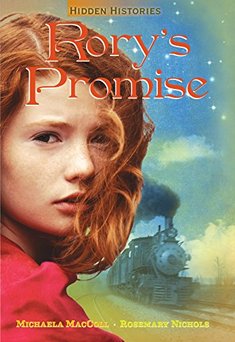
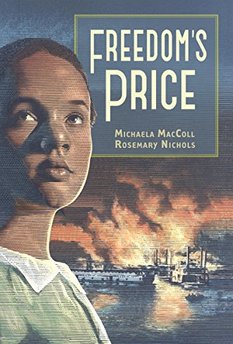
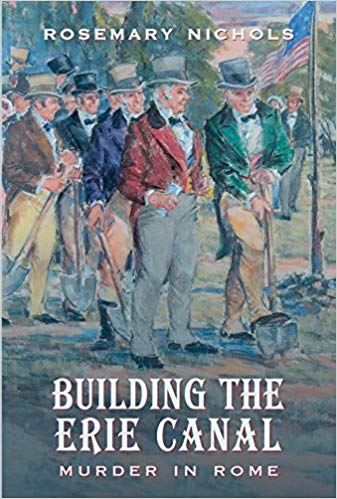
 RSS Feed
RSS Feed

